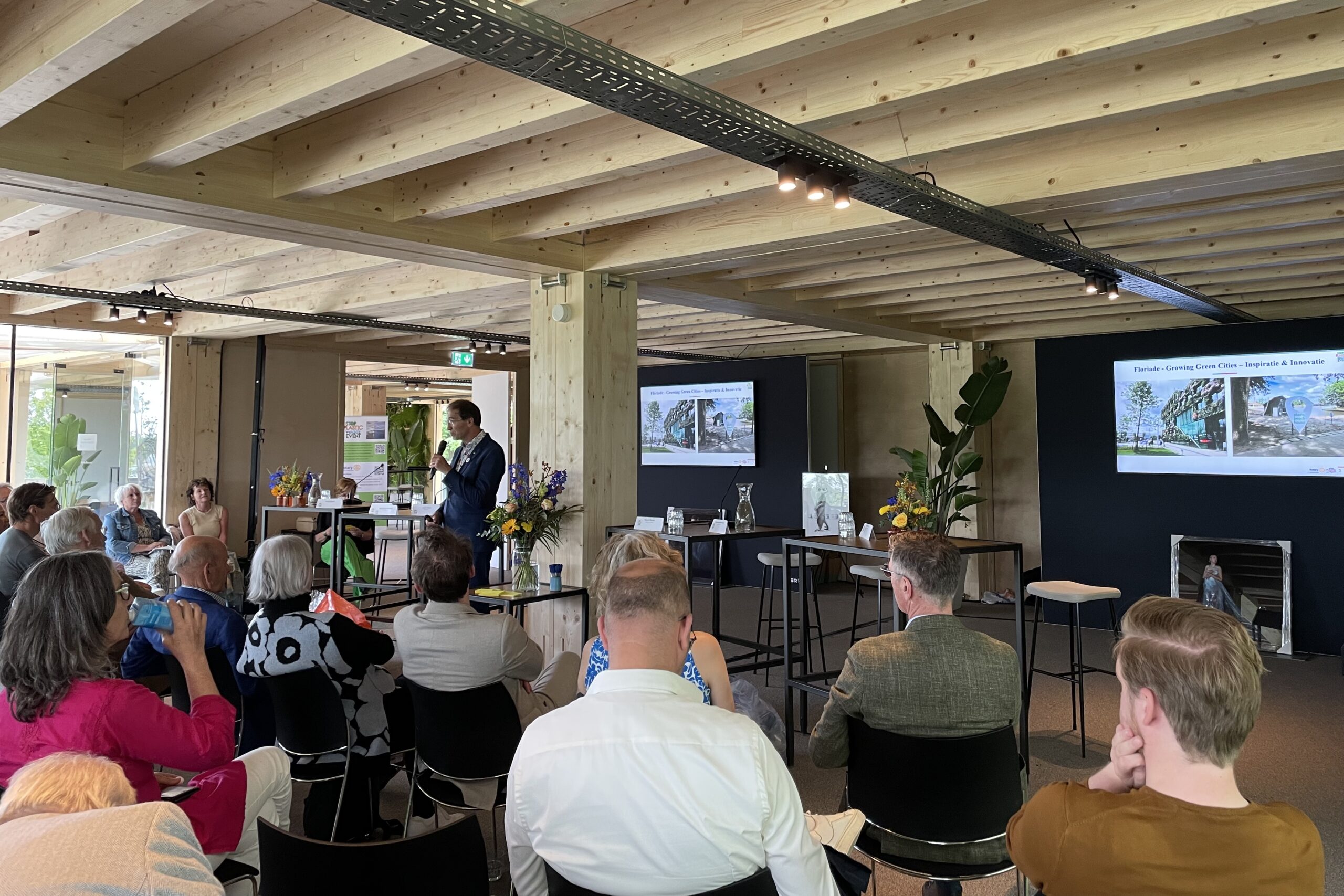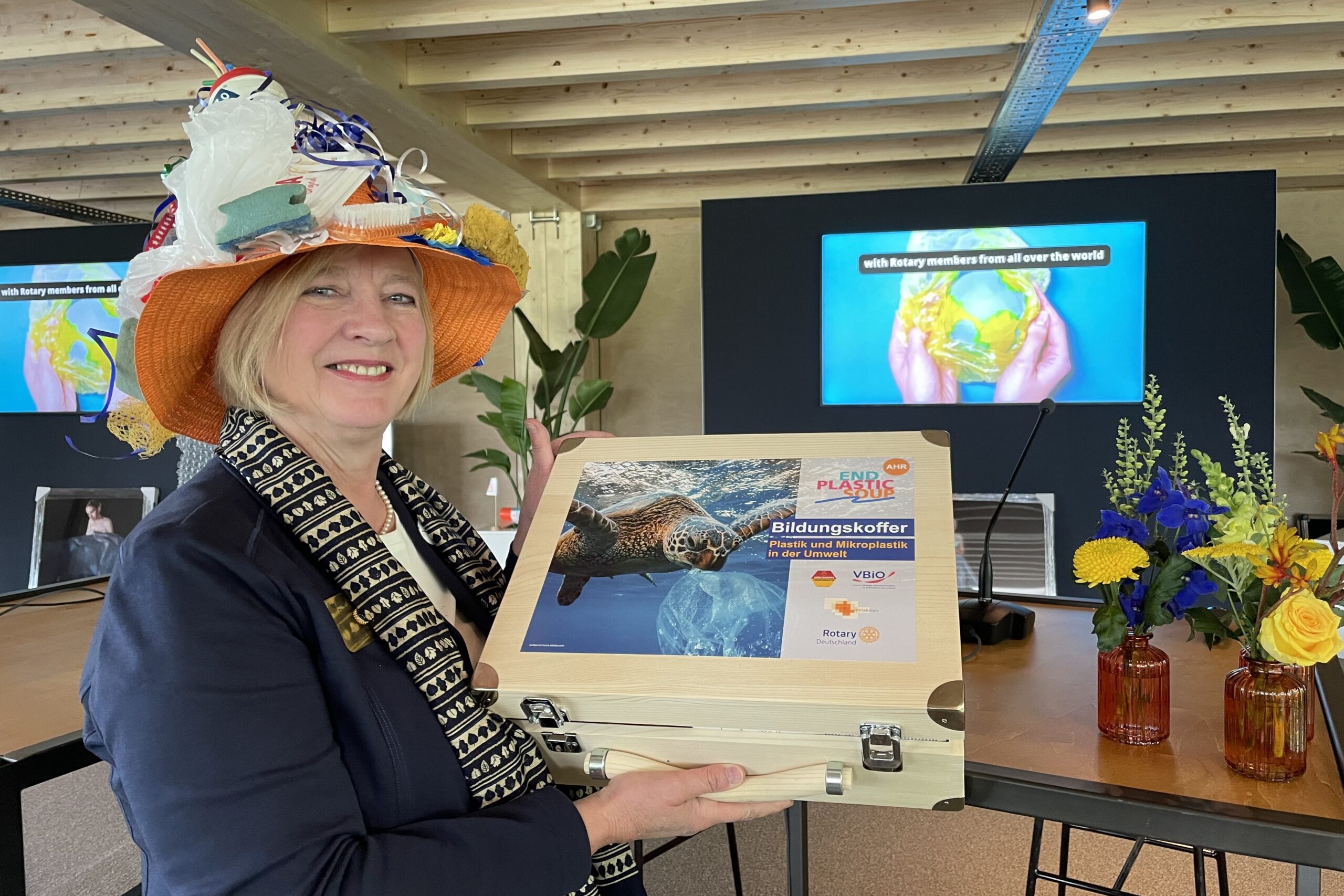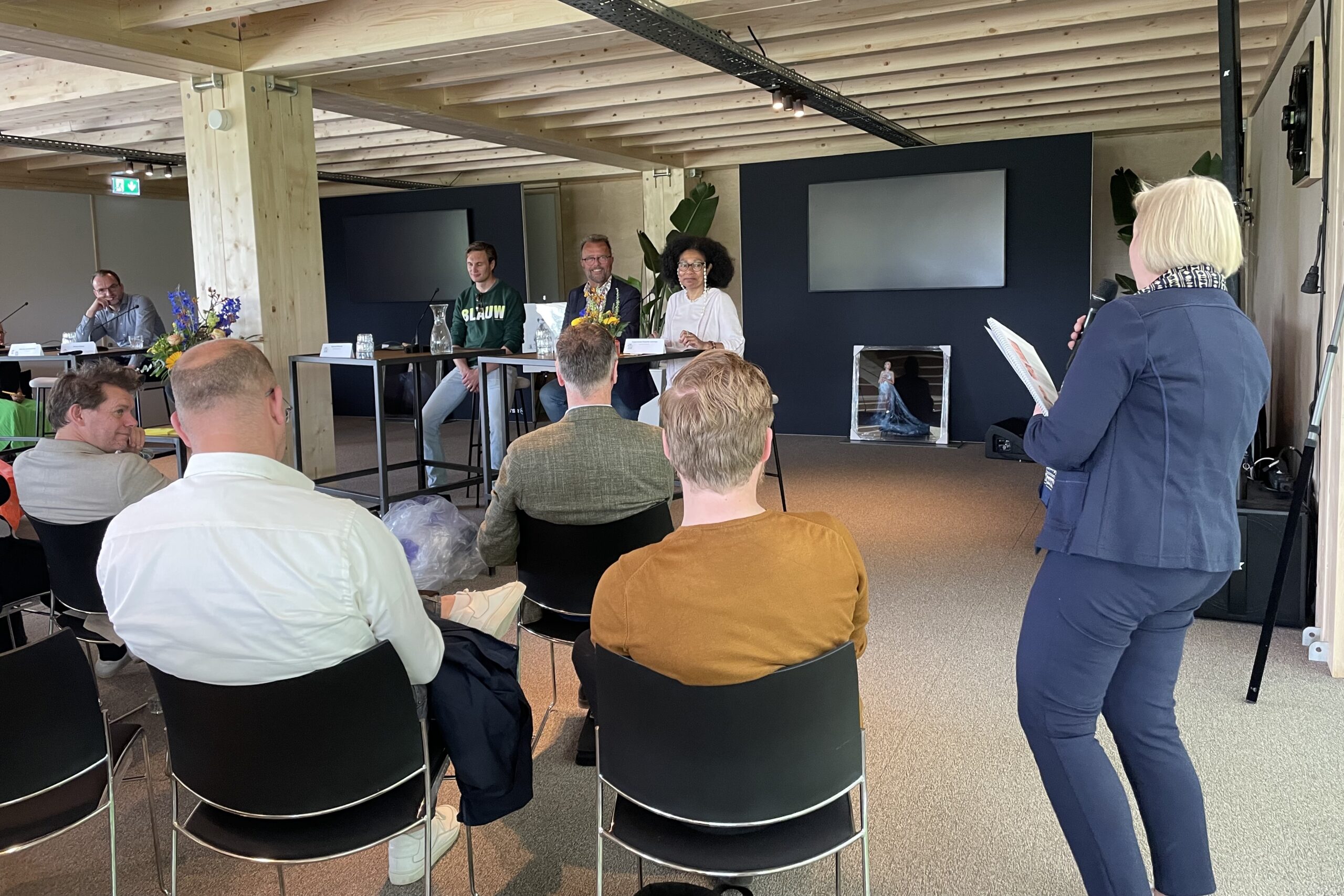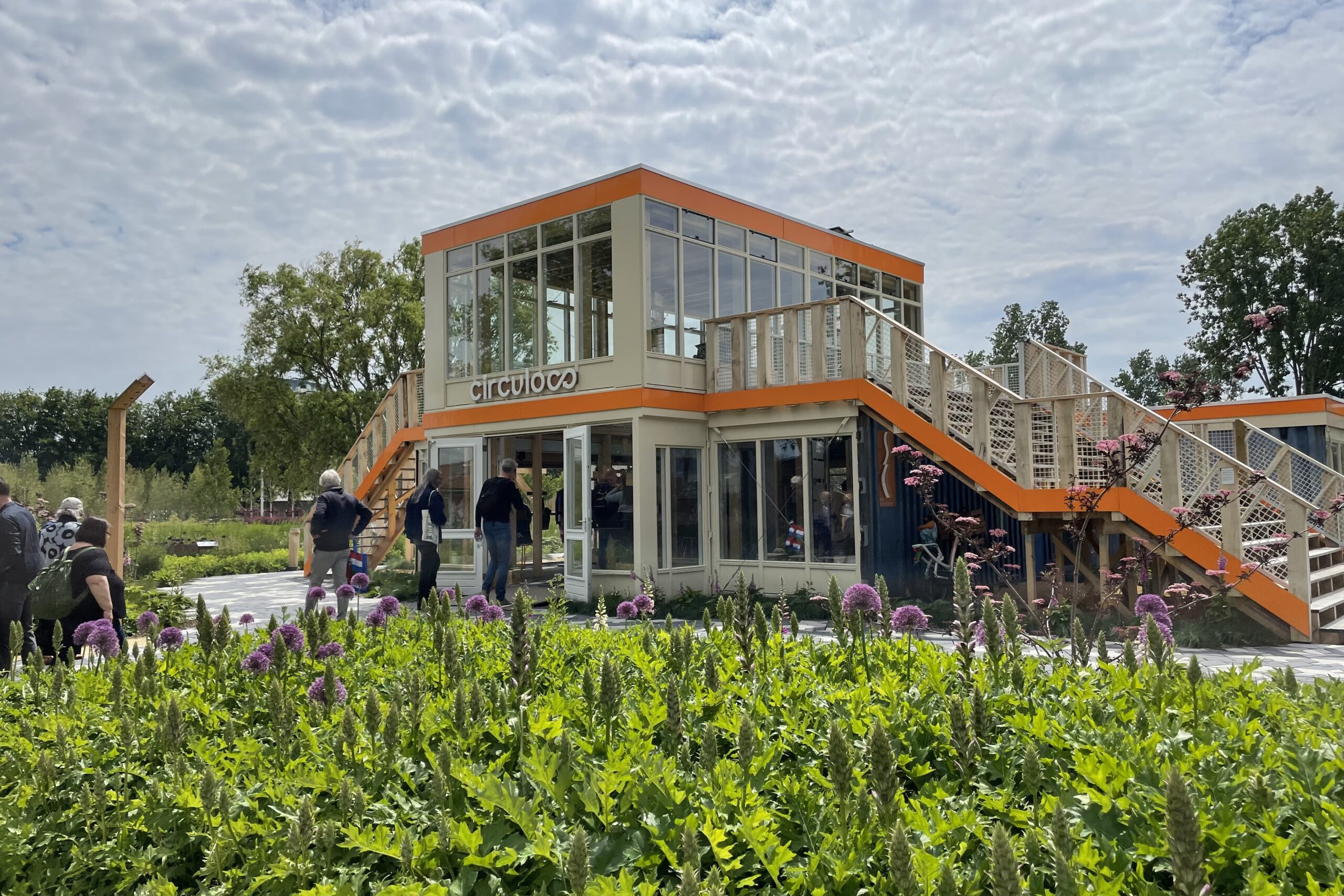On June 4, Rotary members were at the Floriade Expo 2022 for the Stop Plastic Waste Event. This event was organized by the Rotary clubs Almere, Almere Weerwater, Almere New Town, Zeewolde and Huizen Gooimeer in collaboration with Rotary EndPlasticSoup.
Tour of the Floriade Expo 2022
During the event, the Plastic Beach House, made by Save Plastics, was visited and director Bram Peters explained how this house was created using household waste plastic from Almere. The Plastic Beach House can be visited until October 9, the last day of the Floriade Expo.
This was followed by an explanation of Circuloco, a circularly built pavilion where government, entrepreneurs and education experiment with sustainable and circular construction. For example, the pavilion consists almost entirely of waste material and furniture has been reused.
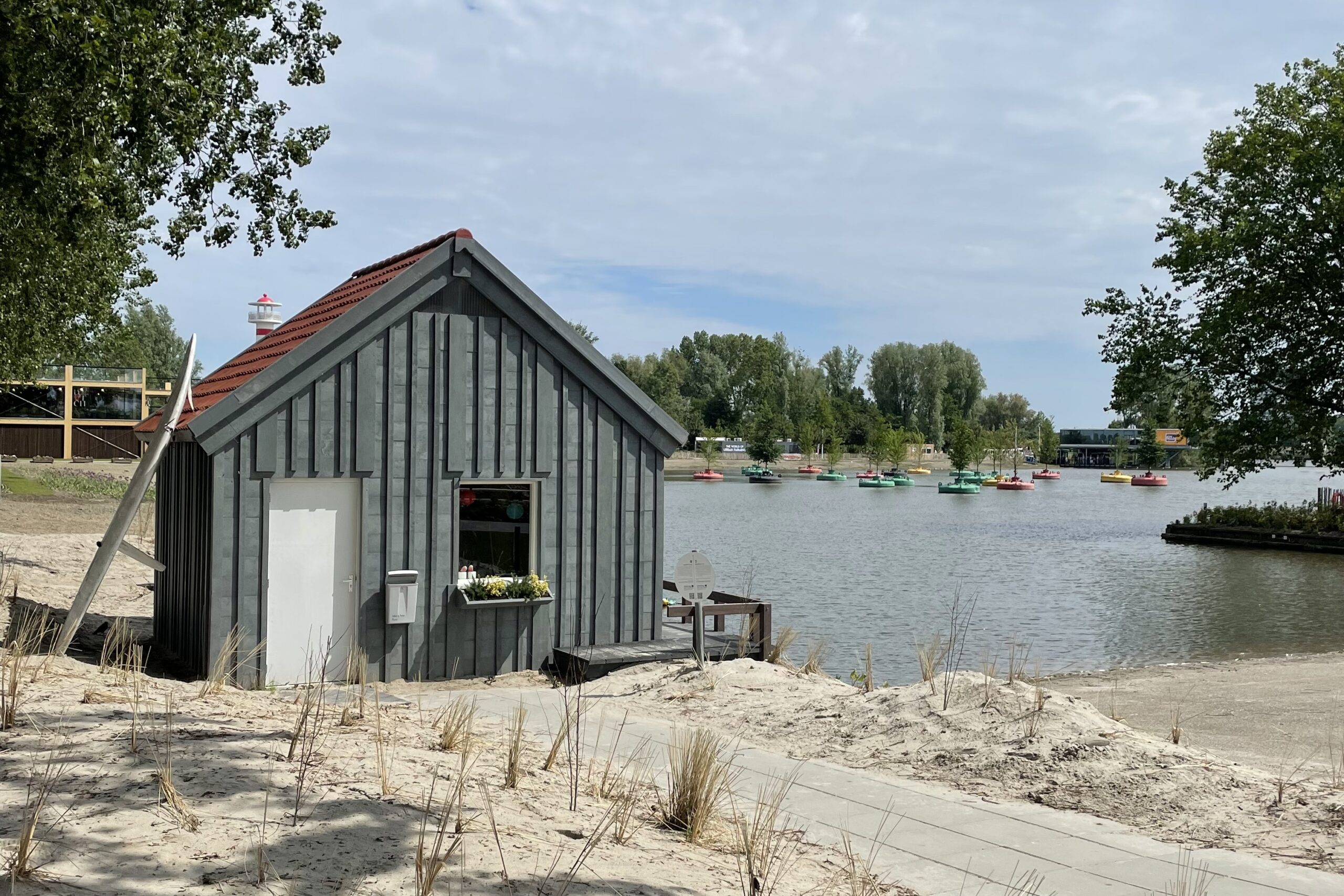
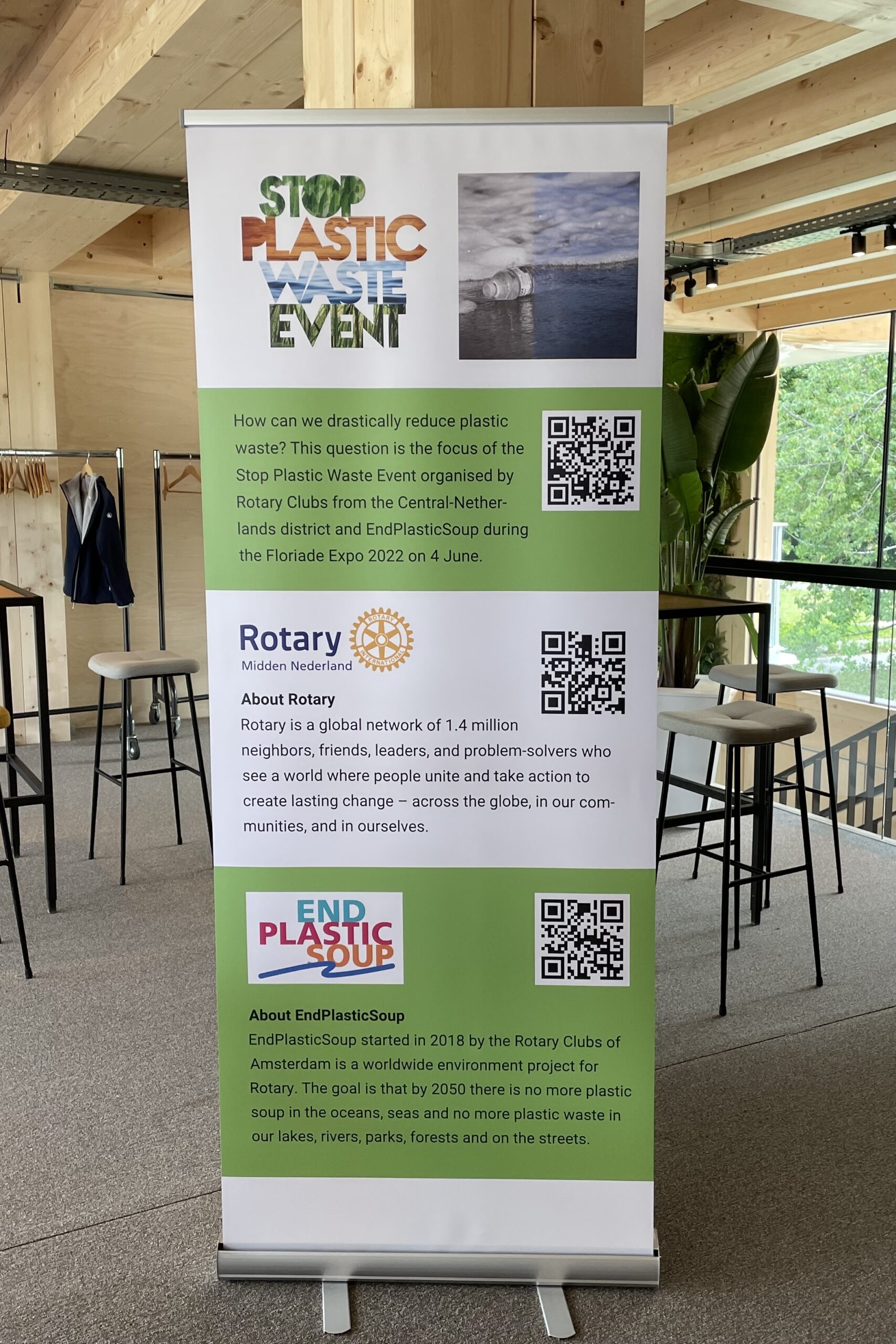
Introduction main program
The main program was kicked off by Hans Bakker, director of the Floriade Expo 2022. He told more about the background of the Floriade Expo 2022, the world horticultural exhibition, which has been held every 10 years since 1960. This year in Almere on a 60-hectare site with the theme ‚Growing green cities‘. You can read more about the Floriade here.
Problem of plastic pollution
After the introduction, Keynote Speaker Gert-Jan van Dommelen, member of the board of Rotary EndPlasticSoup, gave an insight into the problem of plastic pollution. He talked about the danger of plastic for the decrease of CO2 absorption of plankton in the oceans (2/3 of the capacity on our planet) and the negative effect of microplastics on biodiversity and human health. Read more about the problem of plastic pollution on our website.
Within the EndPlasticSoup initiative, Rotary and the global network of Rotary, Rotaract and Interact are already taking action in 43 countries to solve the problem of plastic pollution in the entire life cycle: Reduce, Reuse, Recycle. View the actions and projects.
As an example of using less plastic, all participants were given a plastic-free soap from Happy Soaps.
Dialogue between experts and participants
After the introductions, an open dialogue took place with experts in the field of sustainability, technology, healthcare, government and the recycling industry. Marja Ritterfeld, board member of Rotary EndPlasticSoup and District Governor 2020-2021 D1850 (Germany), moderated the dialogue between the experts and the 100 Rotary members and other interested parties in the room.
Ingrid Zeegers, director of PRICE (Practical & Innovation Center for the Circular Economy) and Bram Peters, Circular hero 2022 and director of Save Plastics, agreed that plastic is too valuable to burn. The emphasis should be on phasing out its use and making extensive use of the possibilities of recycling suitable plastic.
Both the experts and the audience agreed on the importance of raising awareness of the dangers of plastic use in society from young to old.
Fortunately, more and more supermarkets and ecological shops are avoiding plastic packaging as much as possible. These developments contribute to a change in behavior. A good addition from the audience: by setting a good example yourself and communicating about it, you can be an ‚influencer‘ yourself, within your own network and often beyond.
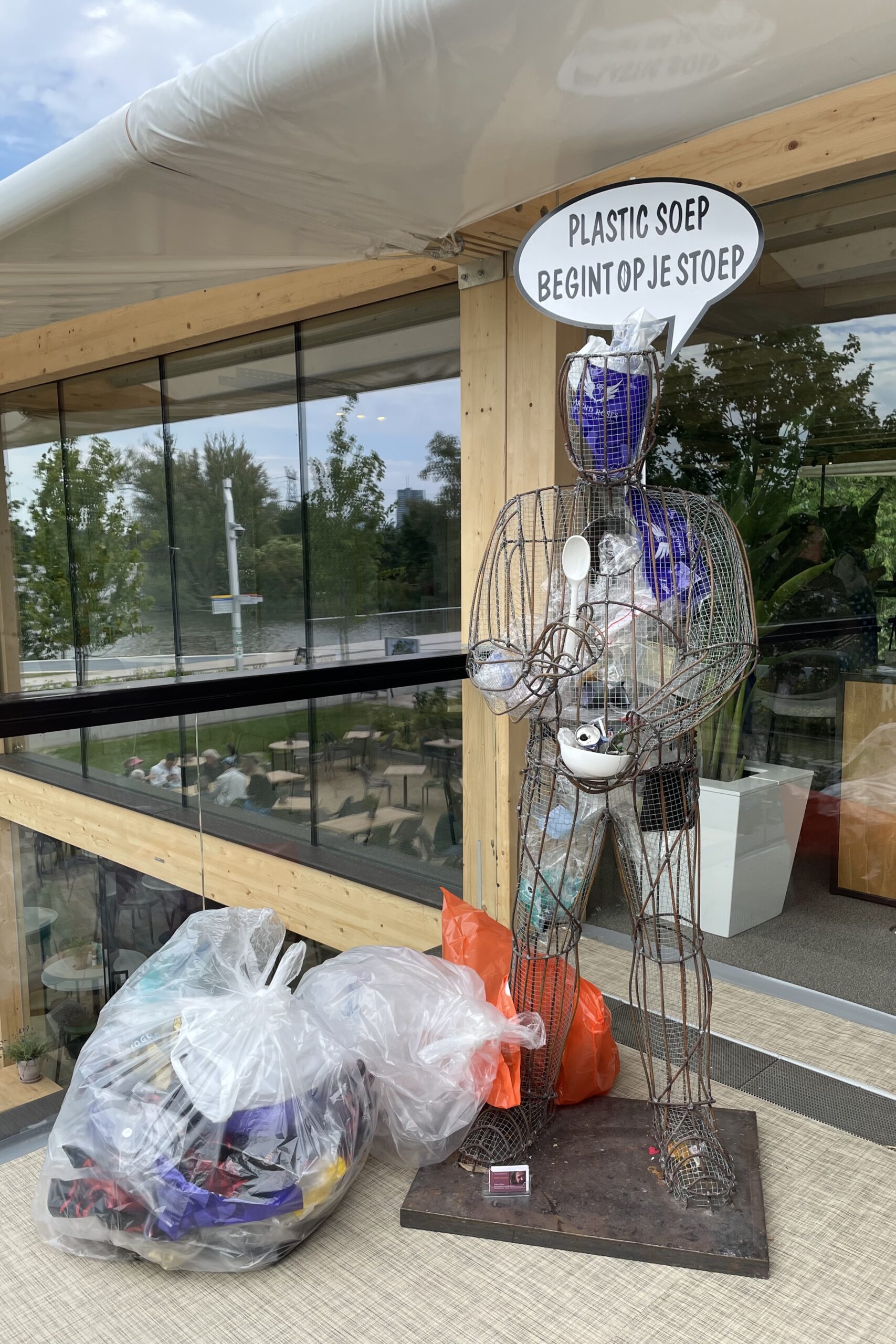
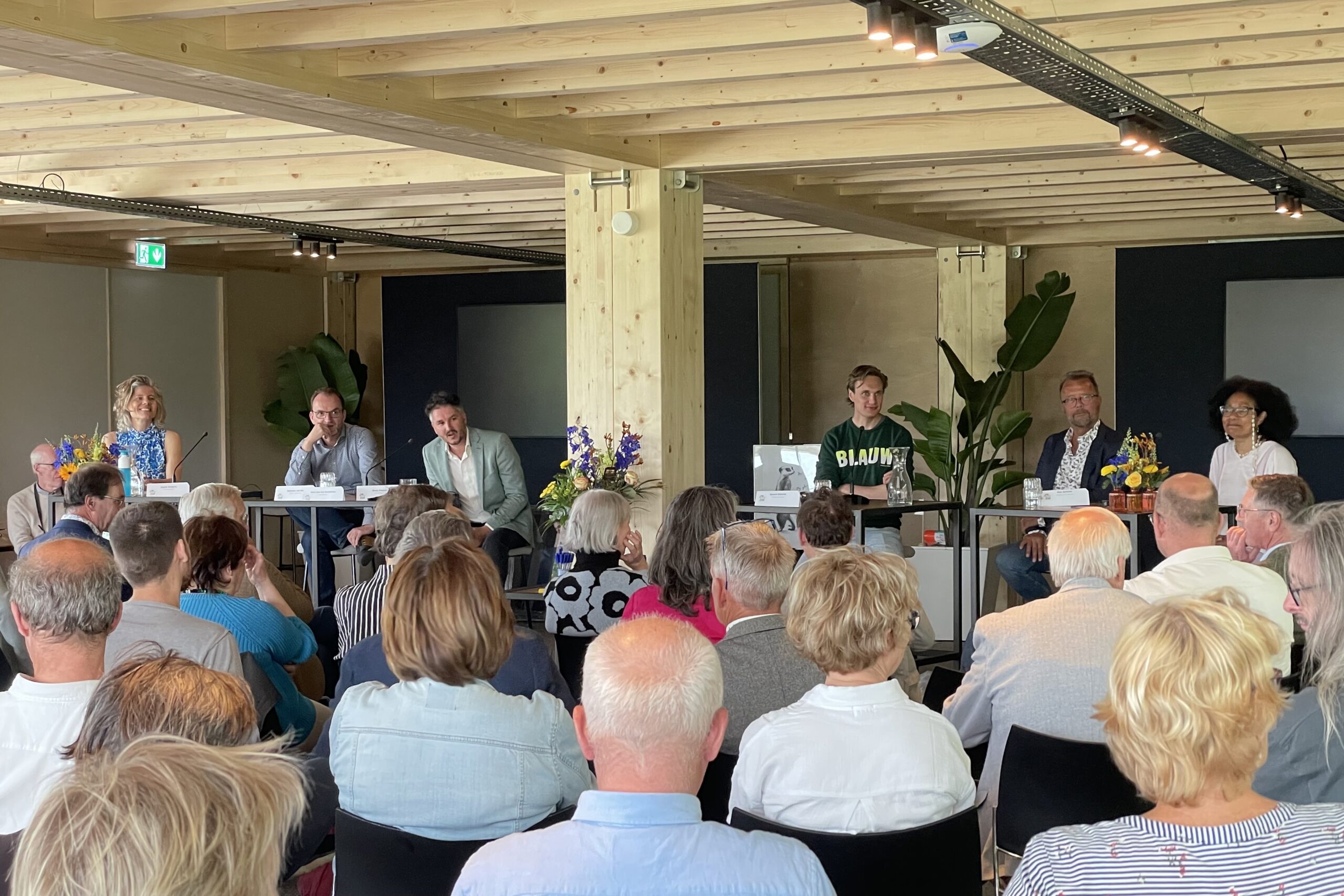
Rob Schram, who has been active in the waste and recycling industry for many years, gave a good example of the positive influence of Trashpackers. These are backpackers who collect waste during their world trip and thus set a good example for the communities they visit during their trip.
Aschwin van der Rey told more about how Almere wants to be clean and sustainable and how the municipality encourages residents to keep the city clean: it may not be your waste but it is your world.
In addition, the opportunities were also seen for a plastic collection program similar to paper collection by schools and associations.
Esperanza Huerta Lwanga, senior researcher at Wageningen University, emphasized the danger of microplastics. Not only in the air and water, but also for our soil, where research has shown that worms and other animals and plants are threatened by microplastics. She also indicated how important education and awareness for the great danger of microplastics is, for both young and old people.
Sjoerd Elferink, ophthalmologist at the Flevoziekenhuis in Almere and pioneer in making ophthalmology more sustainable, showed that a lot of plastic is used in healthcare. This mainly concerns single use in a sterile environment. In order to achieve this completely sterile situation, packaging is often done three times, after which all waste is incinerated at high temperatures to prevent infections. When asked: do you choose your own health or that of society, the audience positively indicated that more balance between the rules to work as sterile as possible and reducing plastic waste and incineration would be acceptable. The video about the amount of plastic packaging waste after eye surgery clearly showed that we have gone too far with plastic use in the medical world.
The dialogue concluded with the statement “Half of personal purchases lead to half of plastic and litter waste.” Experts differed in their opinions on this, although the general consensus was that fewer purchases at the moment lead to much less plastic waste.
Finally
Ingrid Zeegers announced a Hackathon that will take place at the end of August to find creative solutions to deal with our waste streams differently. It is possible that some ideas can still be implemented at the Floriade. The substantive part of the event ended with a call for hope: the planet can recover relatively quickly (within 30 years) if we stop polluting, and with a call for connection to realize the necessary changes in collaboration with all parties.
A follow-up meeting is planned for September 17. The inspiring afternoon ended with a drink and an art auction that raised money for the charity: EndPlasticSoup.
A beautiful substantive and well-organized event.
Photo impression event on June 4, 2022
